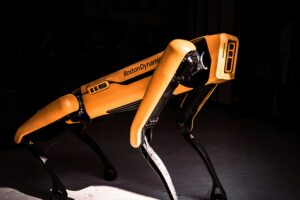Are robots taking over your job? It’s a question that many workers may be asking themselves as automation becomes increasingly prevalent in various industries. From manufacturing to customer service, robots are performing tasks that were once reserved for humans. But what does this mean for the future of work?
According to a report by McKinsey & Company, up to 800 million jobs worldwide could be automated by 2030. This shift towards automation is driven by advancements in artificial intelligence and robotics, which are making machines more capable of performing complex tasks. For businesses, this means increased efficiency, lower costs, and potentially higher profits. However, for workers, it could mean job displacement and the need to acquire new skills to stay relevant in the workforce.
“I believe that automation will create more jobs than it displaces in the long run,” says tech entrepreneur Elon Musk. “But we need to ensure that workers are equipped with the necessary skills to adapt to this new reality.”
As we look towards the future, it is clear that the relationship between humans and machines will continue to evolve. While automation may eliminate some jobs, it also has the potential to create new opportunities and drive innovation. It is crucial for businesses and policymakers to consider the implications of automation on the workforce and invest in programs that help workers transition to the jobs of the future. In this rapidly changing landscape, adaptability and continuous learning will be key to staying ahead in the age of automation.



